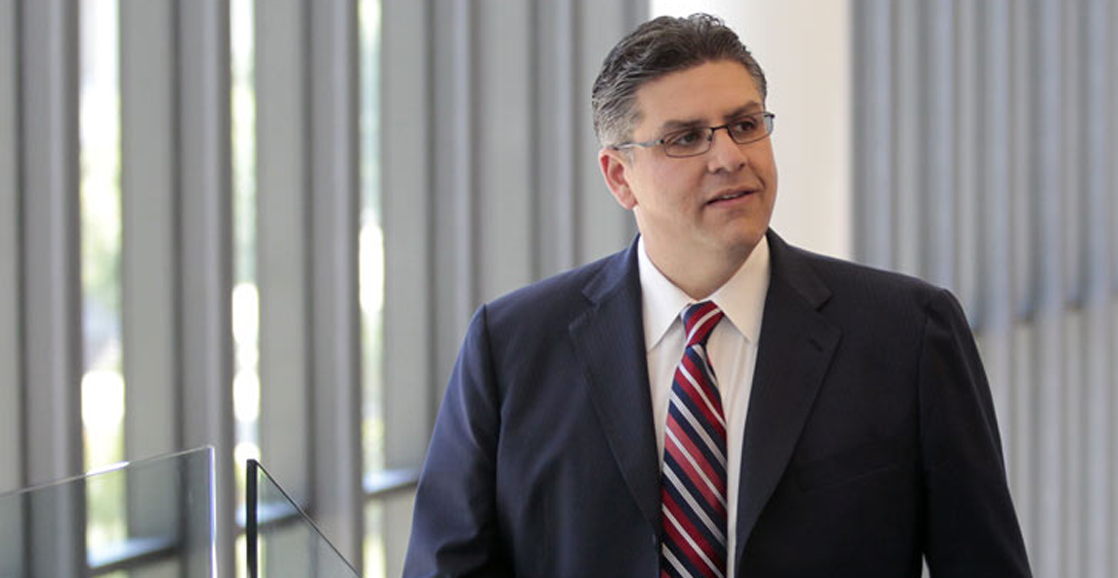Nov. 14: After some behind-the-scenes tinkering, the Fresno City Council narrowly voted to approve new language to its marijuana law.
A key sticking point in the debate over Fresno’s marijuana ordinance was who decided which vendors would receive licenses to open recreational marijuana shops within the city limits.
Under the initial proposal offered by Council members Miguel Arias and Esmeralda Soria, the City Council would take that authority from the City Manager.
Concerns about pay-to-play ethics issues for Councilmembers led to a nixing of the provision.
Instead, under the approved language, the City Manager would retain decision-making authority over granting licenses, but the Council members would retain the ability to appeal grants in their respective districts.
The amended ordinance language was approved on a 4-3 vote, with Council members Arias, Soria, Luis Chavez, and Nelson Esparza voting in favor.
Council President Paul Caprioglio and Council members Garry Bredefeld and Mike Karbassi voted against the language.
The other key component of the updated language was an expansion of the city’s social equity policy for licensees.
The policy, a requirement under California’s marijuana laws, seeks to create opportunities for those involved in illegal marijuana activity to enter the legitimate industry.
Across the state, however, social equity policies have come in a variety of shapes and sizes. Fresno’s original policy gave license applicants a blank canvas to develop social equity outcomes for employees.
Language regarding social equity hiring proposed by Arias and Soria was criticized as being excessively prescriptive, requiring one-third of annual work hours be done by low-income individual, marijuana convicts, veterans or former foster youth.
It also set aside two of the 14 dispensary licenses for firms that meet a bevy of criteria cobbling together low-income status, marijuana-related convictions, or union workforce to aid a dispensary applicant’s application for a license.
Fresno City Council President Paul Caprioglio balked repeatedly at the expanded social equity language, arguing that it was stifling potential applicants rather than promoting them.
“Rather than create more obstacles, I think we should have less obstacles. Less obstacles equal success,” he said during debate.
Fresno City Council member Garry Bredefeld made an impassioned plea to the city’s Mayor, Lee Brand, to veto the proposal and honor campaign promises to stand against recreational marijuana dispensaries.
Nov. 11: It may not look it, but Fresno may finally stop blowing smoke on highly-coveted marijuana tax revenue. First, the city has to figure out who will be able to open up shop.
On Thursday, the Fresno City Council will vote on new language that, if approved, would hand the City Council the ability to decide who gets the highly-coveted licenses to operate recreational marijuana dispensaries in California’s fifth largest city.
The moves come as Fresno is stuck in neutral, awaiting an environmental impact report on marijuana dispensaries in town.
Currently, Fresno’s marijuana laws place the power to decide marijuana dispensary operators with the City Manager.
The draft language up for vote on Thursday, proposed by Councilmembers Miguel Arias and Esmeralda Soria, tweaks existing language. If approved, the City Manager would recommend operators, but give final say to the City Council.
The changes raised the specter that the process of awarding could be easily politicized by elected officials and subject to corrupt, pay-to-play schemes.
Despite provisions in Arias and Soria’s proposal prohibiting dispensary applicants from communicating with the city’s elected officials, reservations over ethics were at the forefront of comments from Council President Paul Caprioglio and Council member Luis Chavez.
“I want to be very careful about even the perception that councilmembers are directing or prohibiting businesses going into a specific location,” Chavez said while conversing on the proposal during the meeting.
Caprioglio, a co-author of the city’s current marijuana laws, argued that keeping decision-making in the hands of the City Manager was the best route for more than merely ethical obligations.
“I’m not sure that’s the best decision,” Caprioglio said of the initial proposal to have the Council make the decision. “Maybe the Council could appeal a recommendation by the City Manager. To put that choice on me, individually, is a bit onerous.”
Even as the environmental impact process continues, Caprioglio noted that interest in Fresno among likely applicants for licenses continues.
“I’ve had so many people call me and tell me their program,” Caprioglio said of interacting with dispensary applicants. “The pat answer is always the same: ‘I can’t help you, I don’t know what the rule is, I don’t know where we’re going. So give me some space and let me figure this out.'”
Caprioglio followed up by noting that worries about pay-for-play may not be far-fetched and that his arms-length approach to marijuana dealers exploring the Fresno market is not universal among City Council members.
“I’m not sure everyone on this dais has had that approach with all those that have asked, and stated, and related their positions,” he added. “The reason I say that is because it’s been told to me by [other potential applicants] what they have been told.”
Other tweaks to the marijuana ordinance are focused on the so-called “social equity” component.
Other jurisdictions have leaned on social equity policies to allow those involved in illegal marijuana activity the opportunity to enter the legitimate industry.
Fresno’s current laws state that applicants can provide social equity outcomes as part of their applications to open a dispensary, but provides no specifics.
During debate in October, Caprioglio emphasized that the current language was crafted to provide the greatest flexibility for business owners to generate social equity policies and practices.
Arias and Soria’s proposal, however, would require specific social equity practices as part of their application.
A key provision requires the city to provide one of seven permits to a dispensaries whose ownership includes individuals that reside in a “low-income household” and meets other requirements such as being convicted on marijuana charges or being related to a marijuana convict.
The only applicants that can receive the so-called “social equity” permits without having an owner or ownership group combine low-income status with past marijuana convictions are dispensaries that will employ union labor.
Another provision requires all dispensaries to hire low-income, marijuana convicts, veterans, or former foster youth for at least one-third of annual work hours.
Regardless of whether Arias and Soria’s proposal is approved, one thing would remain a constant for now: the number of dispensaries allowed in the city.
Fresno’s marijuana ordinance limits dispensaries to a maximum of two per Council district, or a maximum of 14 in the entire city.
Allowing additional dispensaries would require a vote by the City Council and be evenly distributed across the city.










